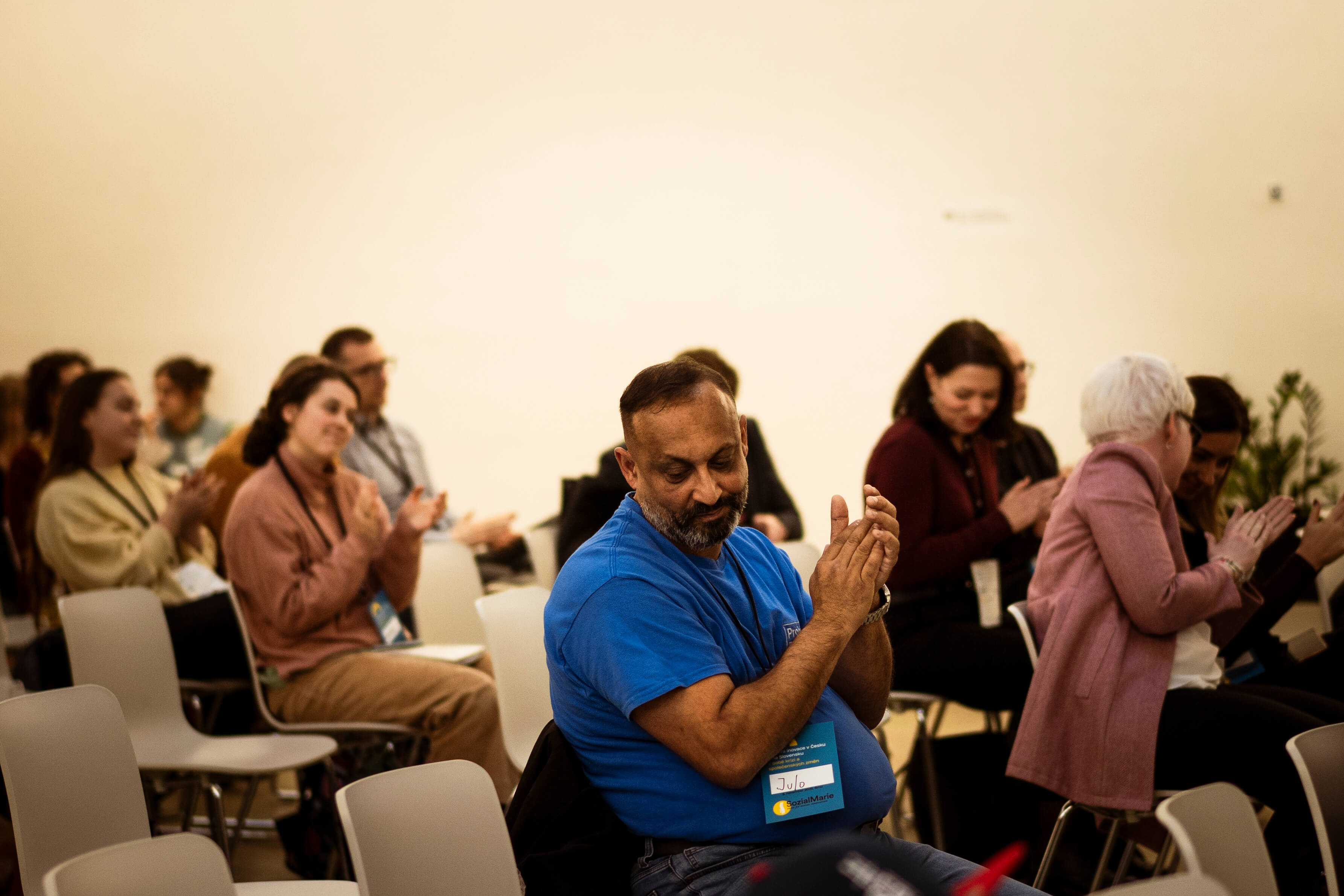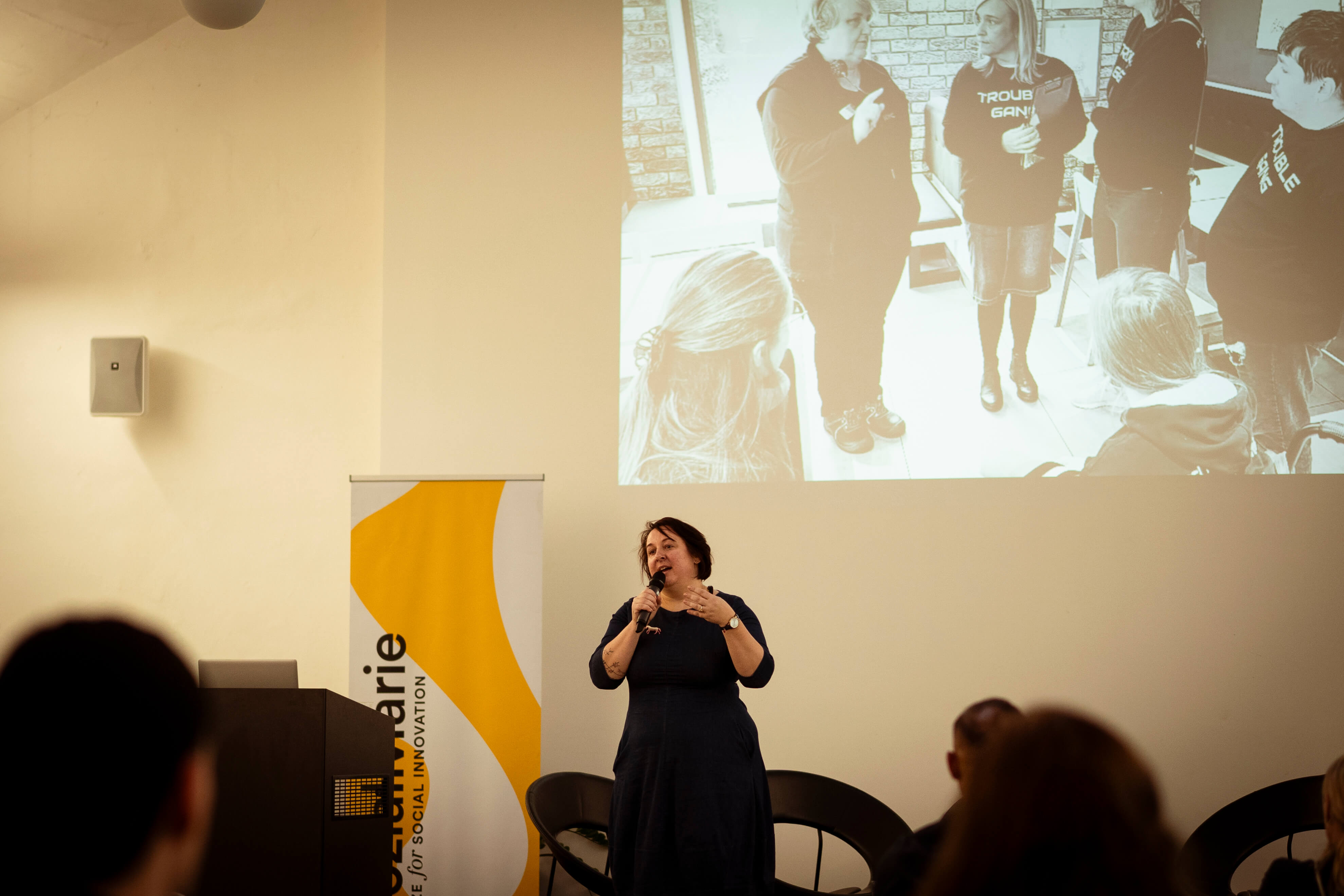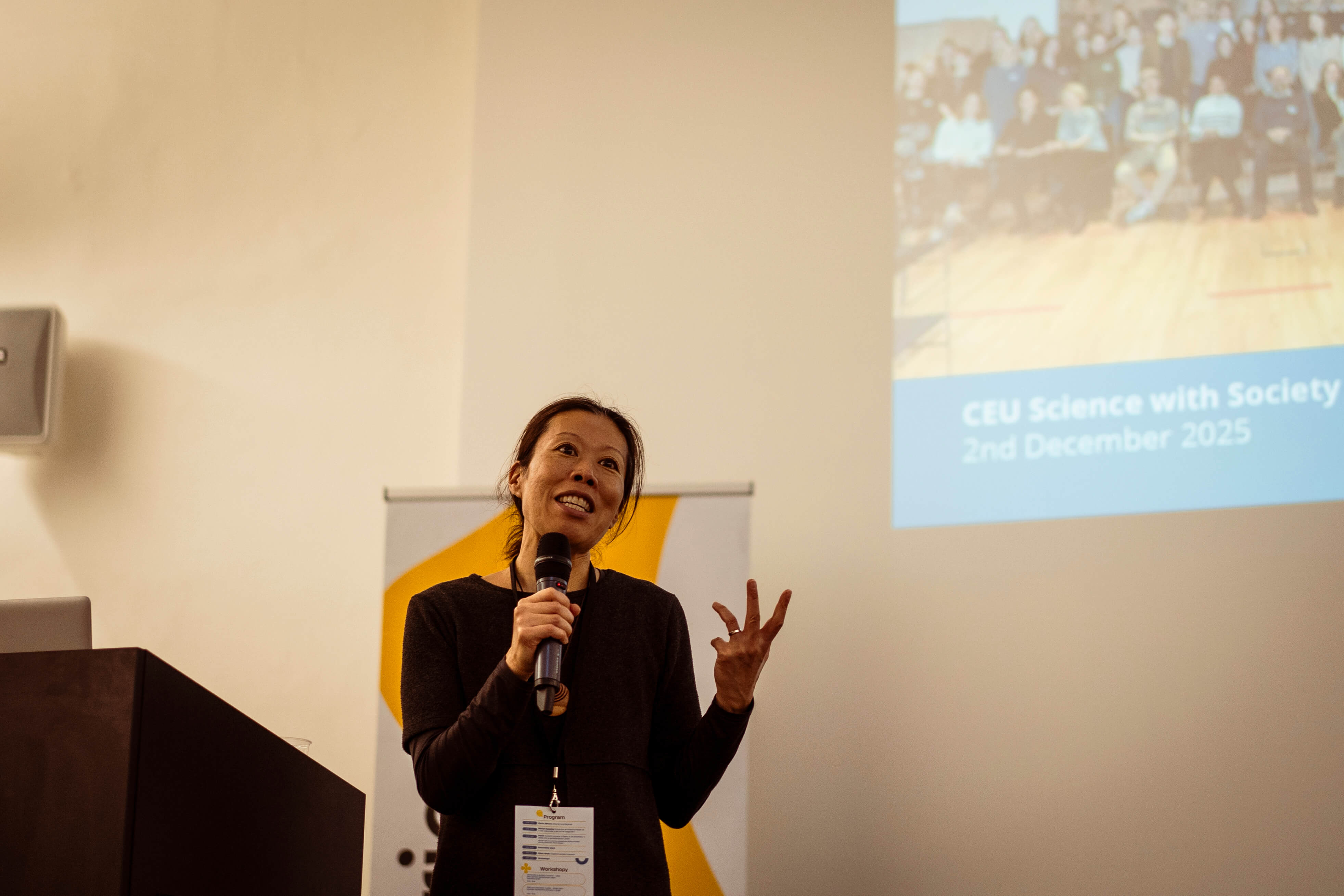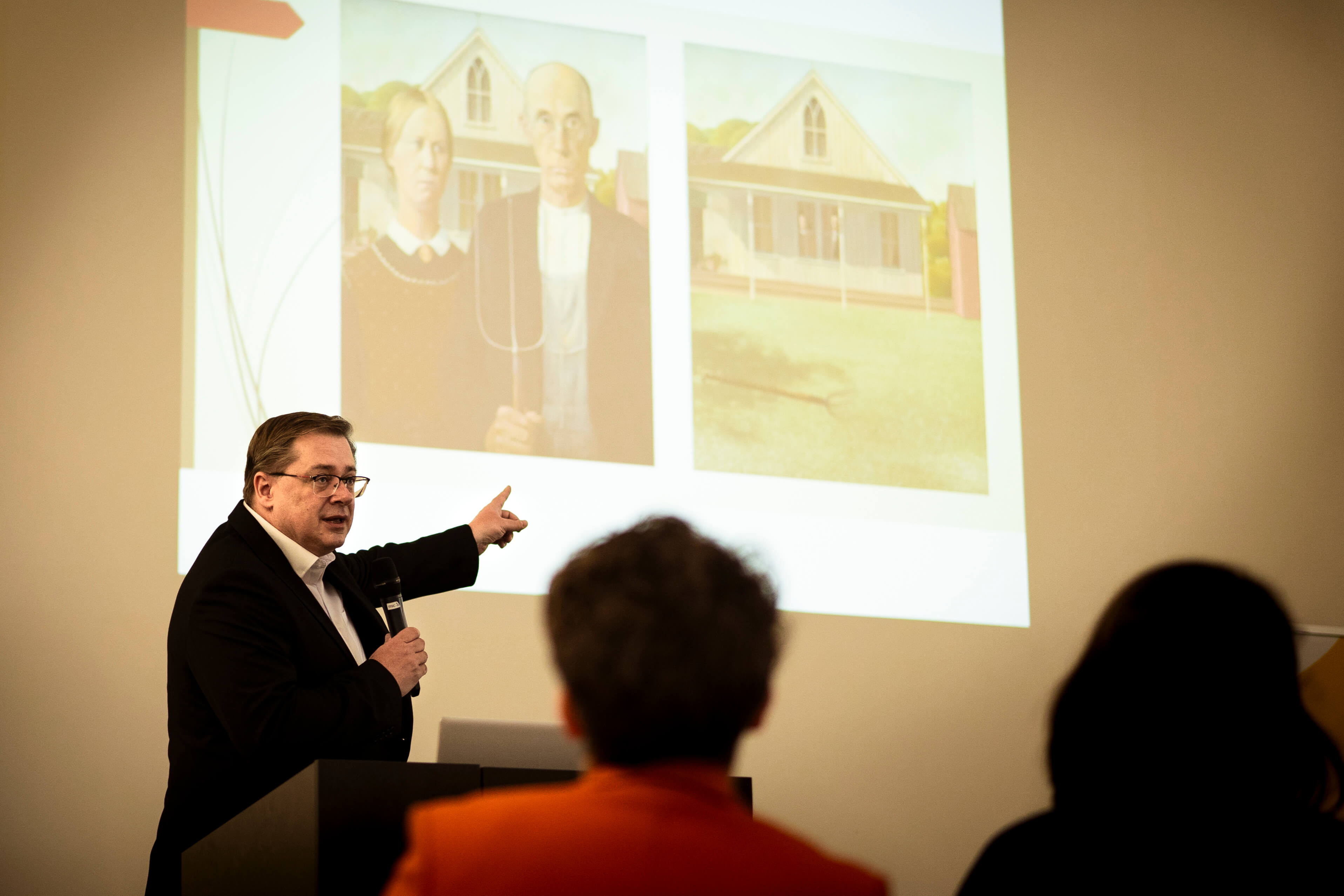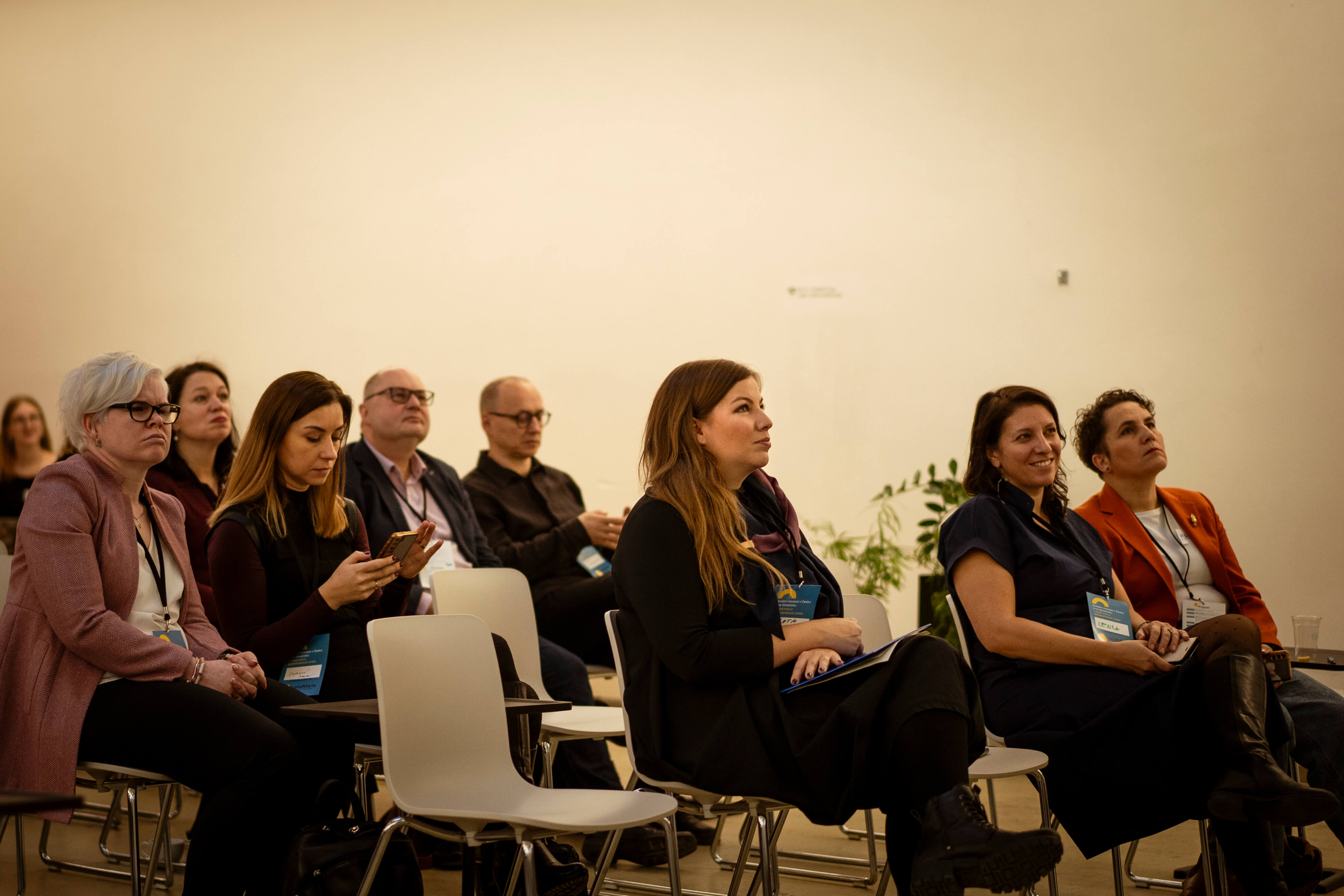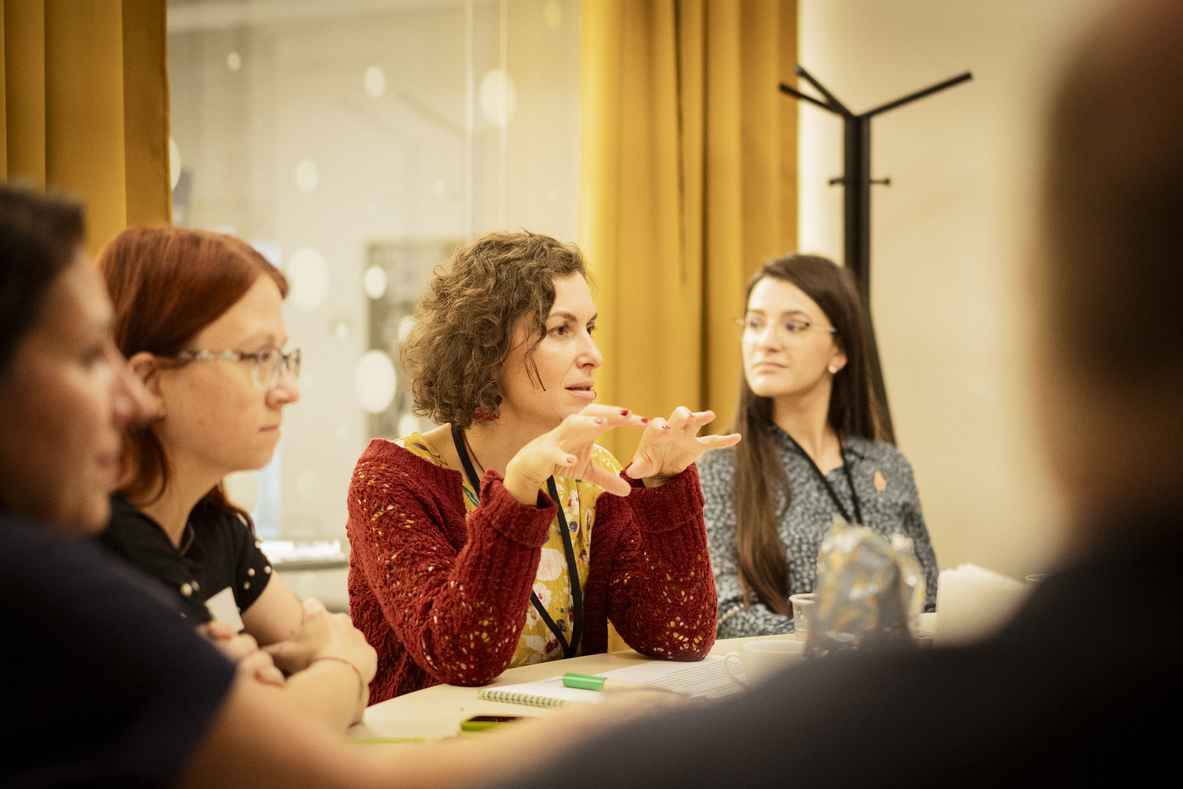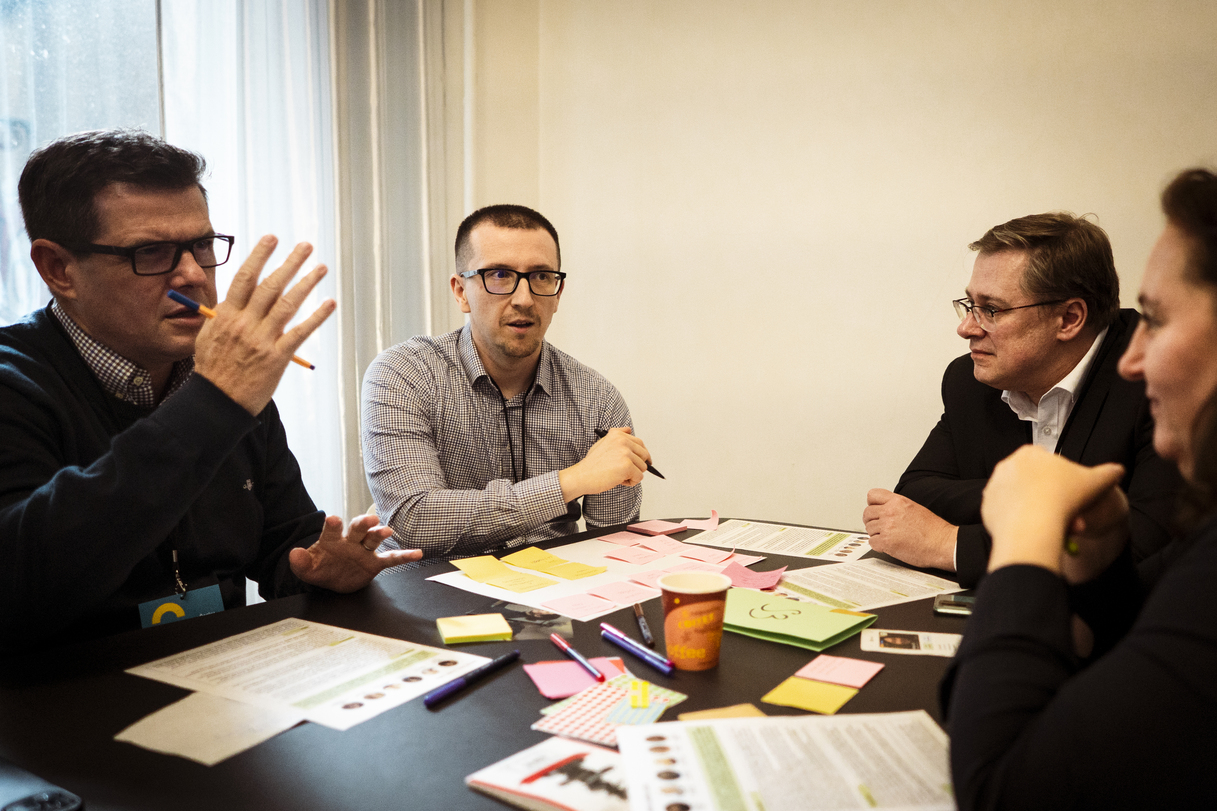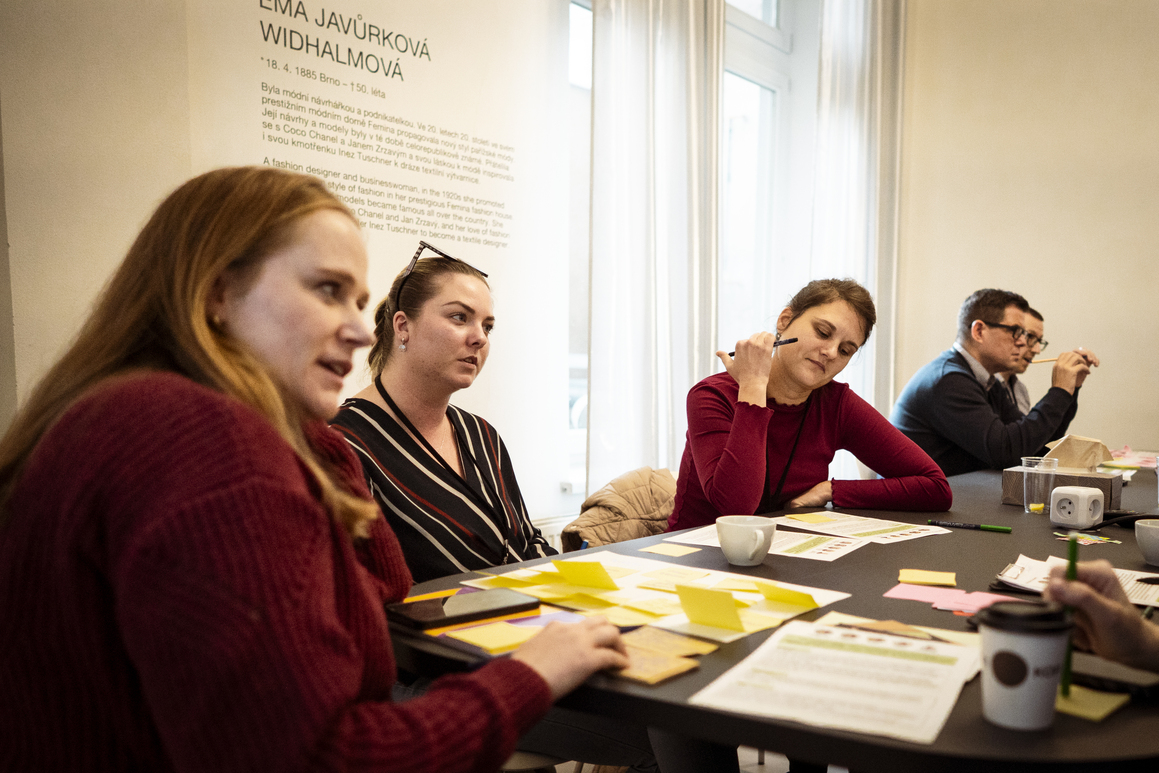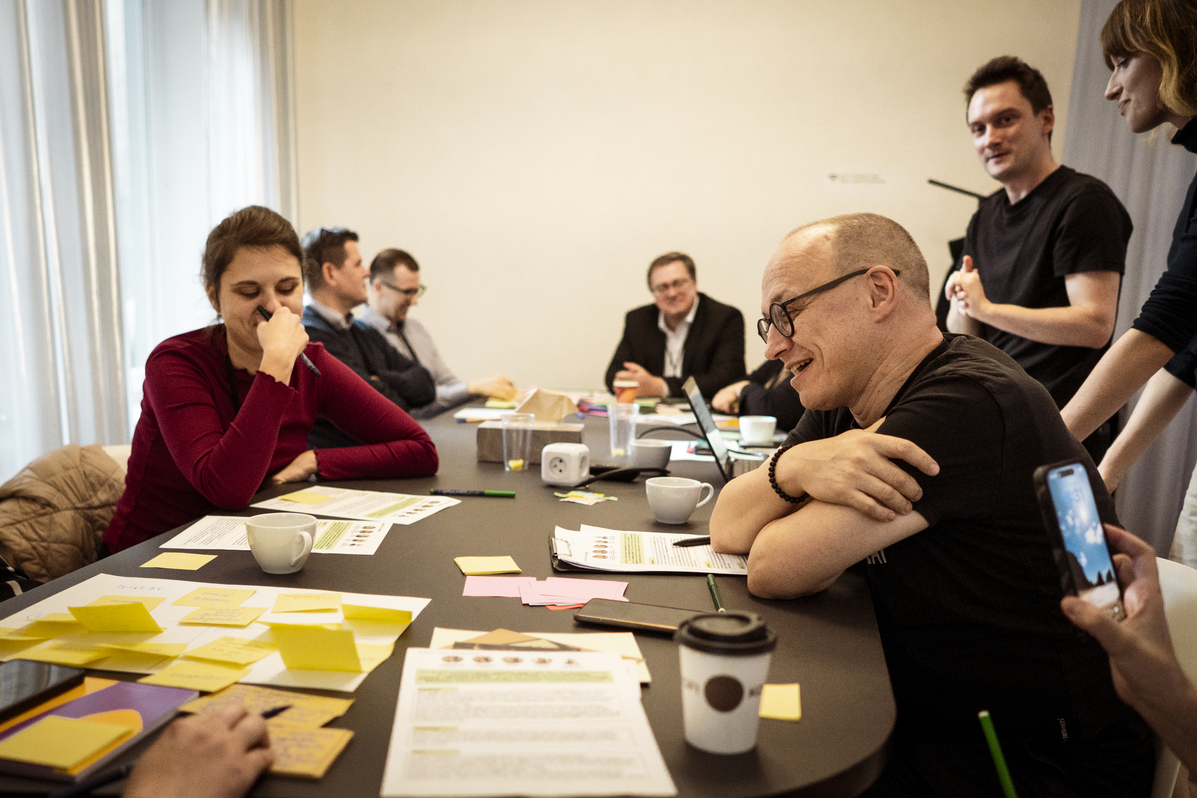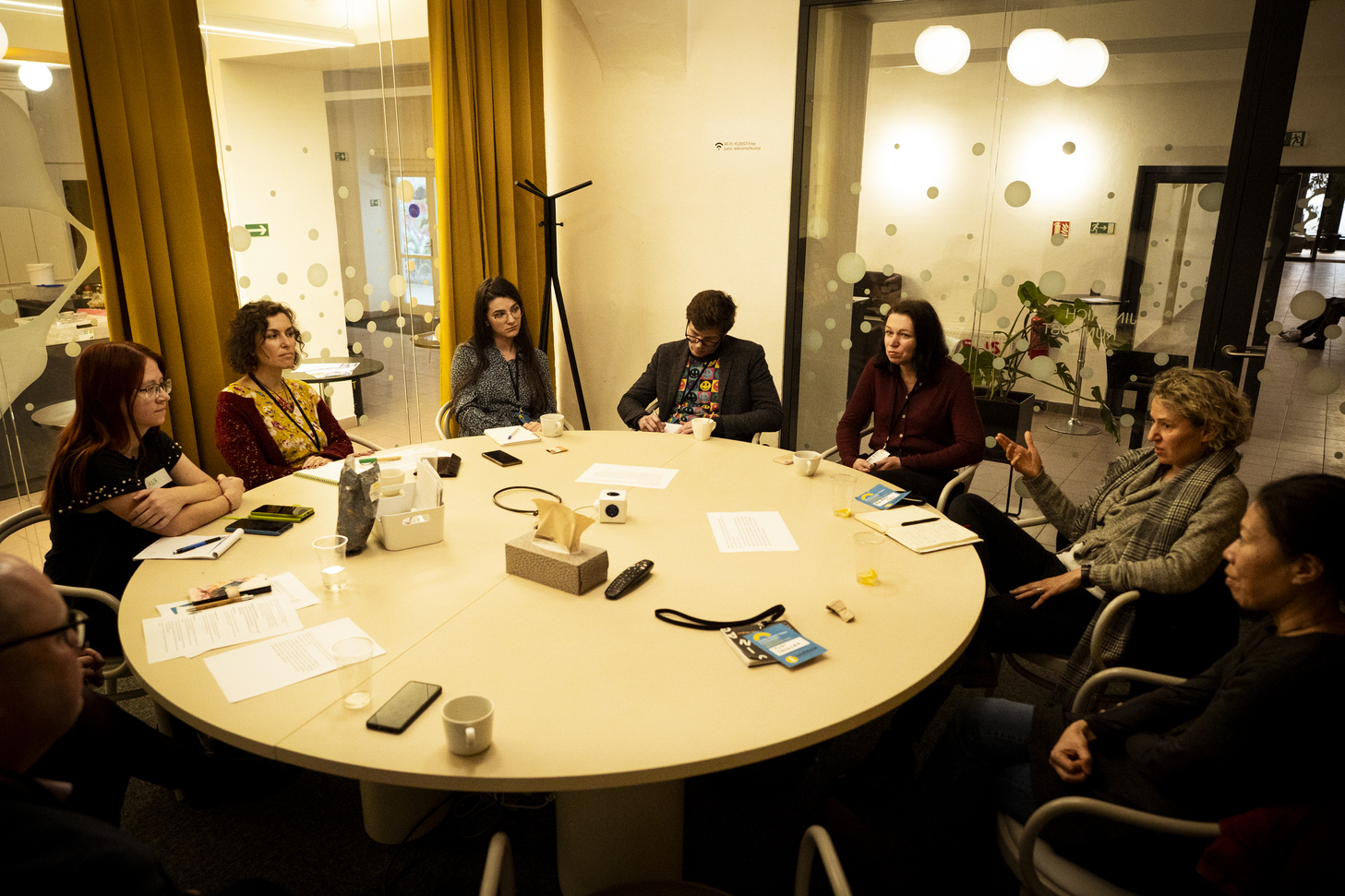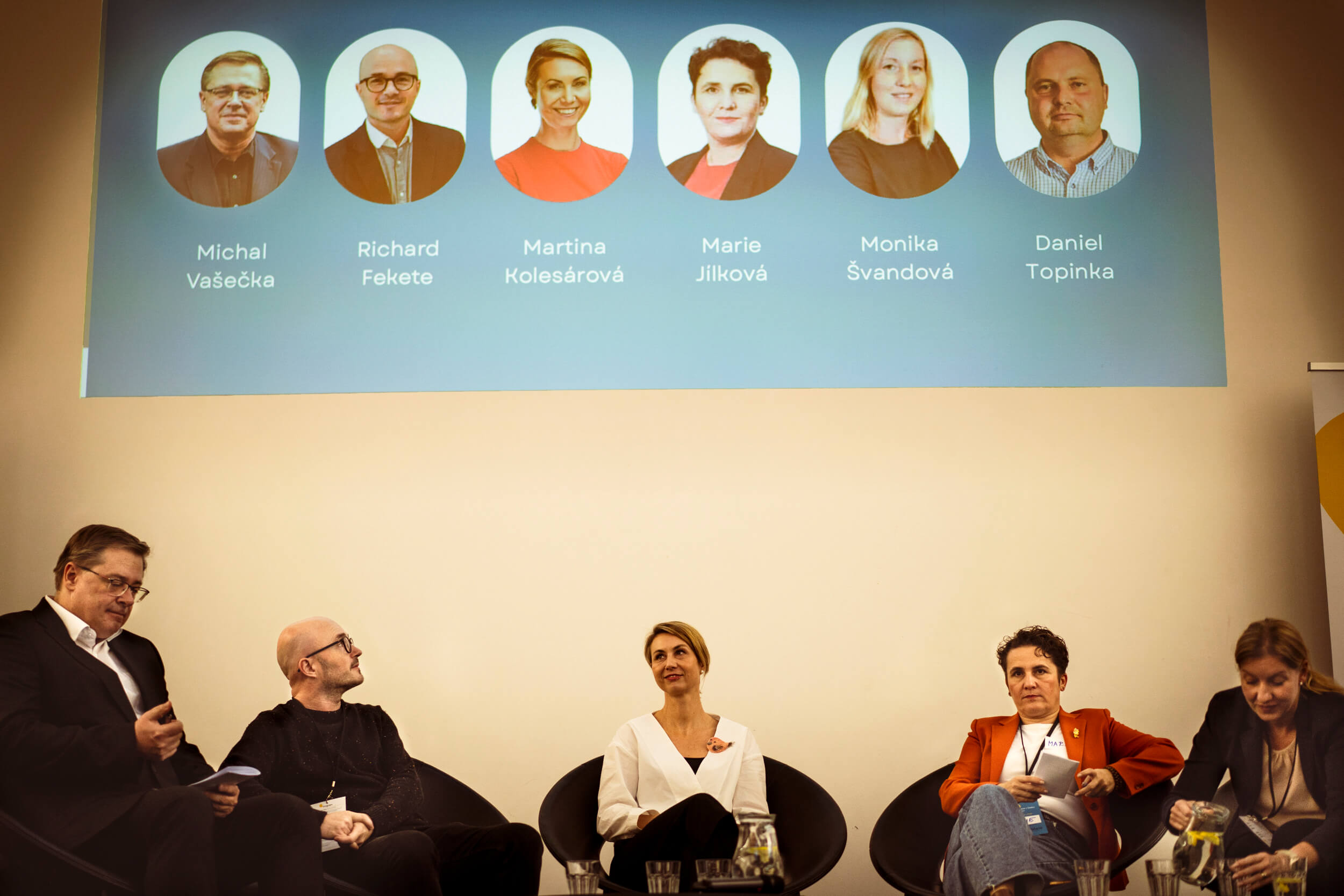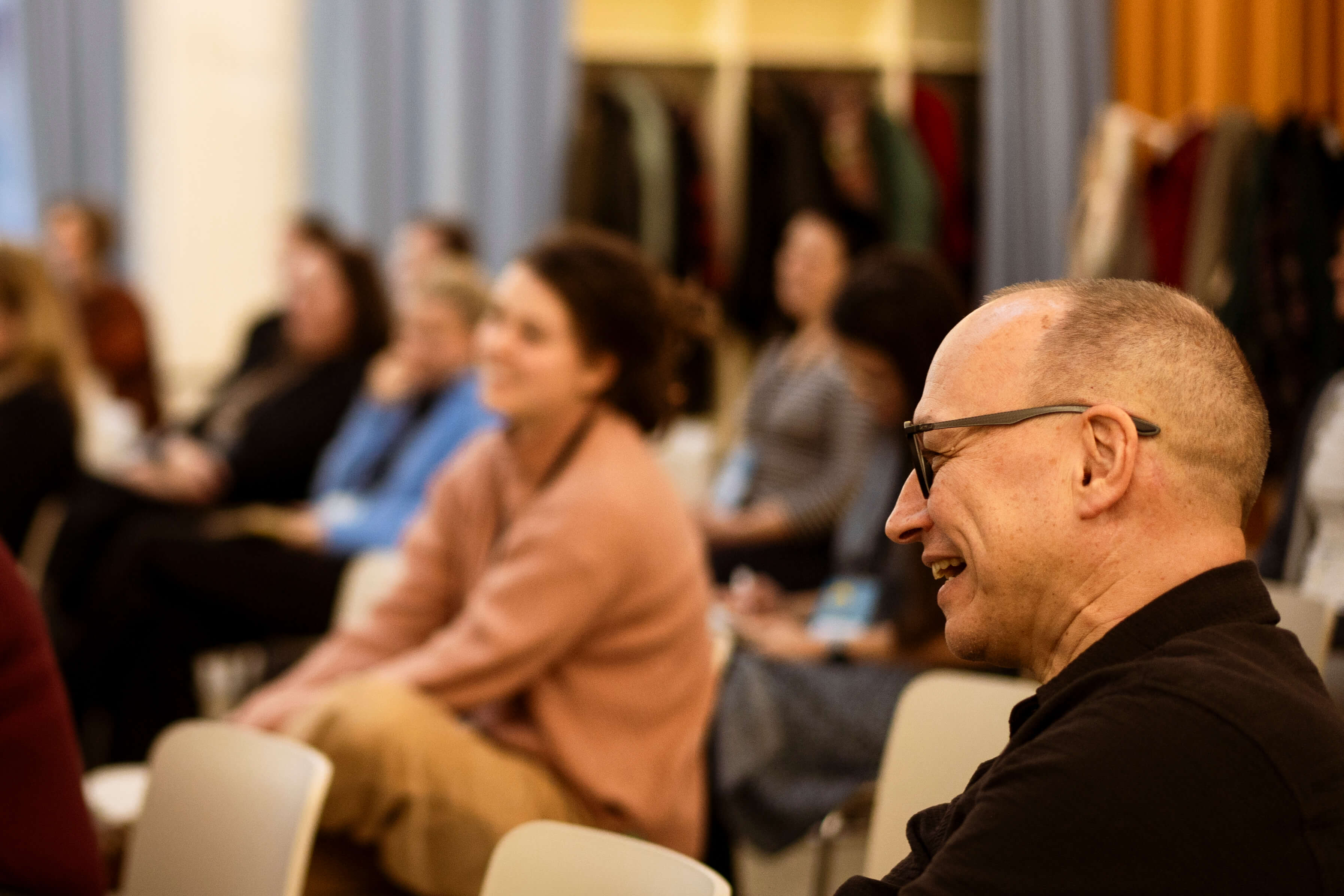In times of crisis, relationships and trust make all the difference. That’s why we need social innovation.
Hírek
11/25/25
At the Czech–Slovak SozialMarie conference in Brno, sociologist Michal Vašečka posed a key question: how can Central Europe face polycrises that reinforce one another? His message was simple: relationships and trust are our strongest foundation — and social innovation helps to build them.
At a time when Central Europe is experiencing everything from demographic change to political polarization and digital uncertainty, it is becoming increasingly clear that crises do not arrive one by one. As the Slovak sociologist Michal Vašečka showed at the SozialMarie conference in Brno, we are living in an era of polycrises – situations in which multiple crises unfold simultaneously, reinforce one another, and create conditions that cannot be addressed by isolated interventions.
That is why, on 6 November, the SozialMarie teams from Czechia and Slovakia joined forces to organise the conference Social Innovation in Times of Crisis and Societal Change. Although it was a Czech–Slovak event, the themes and discussions went far beyond the borders of both countries – addressing the whole of Central Europe, its transformations, challenges and opportunities for renewal.
Polycrises and the Risk Society: Where Central Europe Stands Today
A key moment of the conference was Vašečka’s opening keynote. He described Central Europe as a region that is already a risk society – a society in which uncertainty is not an exception but the very environment we live in.
The risks we face are not always visible or evenly distributed. They have permeated everyday life and taken new forms: demographic decline and rapid ageing, declining trust in institutions, rising loneliness and anomie, digital dependency and algorithmic manipulation, environmental and economic instability, intensifying polarization and conspiracy thinking.
Vašečka stressed that these dynamics cannot be separated. They emerge at the same time, reinforce each other, and create a qualitatively new state of society that requires an equally complex response.
Relationships as the Foundation of Resilience
One of the strongest ideas in the keynote was surprisingly simple. According to Vašečka – supported by the long-term Harvard study of adult development – the quality of human relationships is the strongest predictor of health, wellbeing and our ability to withstand crises.
A high level of trust, strong social bonds and the capacity to collaborate form what he calls the “strategic infrastructure of society”. Where relationships weaken, space opens for fear, misinformation and social tension.
This message ran not only through the keynote, but through the entire conference: social innovation is not only about new tools or services. It is about rebuilding relationships, strengthening cohesion and enabling people to search for solutions together.
Cross-Sector Dialogue: Where Innovation Thrives — and Where It Stalls
The following panel discussion confirmed that social innovation today faces similar barriers in both Czechia and Slovakia. Participants from public administration, the banking sector, civil society organisations and academia described the same obstacles: low trust between sectors, rigid public administration, short-term funding and a weak culture of impact measurement.
At the same time, hopeful examples of progress emerged: partnerships across institutions, meaningful participation of target groups, new financing models and a growing willingness to find solutions gradually and learn along the way, rather than promising a fixed, predetermined path.
Pillars of the Future: Knowledge, Care and Education as Drivers of Change
The afternoon workshops offered three distinct but interconnected perspectives on what the future of social innovation might look like. The Science with Society team from CEU Vienna (SozialMarie 2025) showed how participatory research brings universities closer to society. Masaryk University’s Department of Information Studies and Librarianship presented visions of ageing and care through speculative design and scenario work. And the Slovak SozialMarie team shared practical insights into what distinguishes truly innovative projects from those that merely respond to immediate needs.
Inspiration from Awarded Projects
A strong moment of the day was the presentation of three SozialMarie laureates: DOM.ov (SK – 2020), Troublegang (CZ – 2024) and Science with Society (AT – 2025). Each represents a different way of building social change: through community support, inclusive employment or participatory research.
What connects them is trust – trust in people’s own abilities, trust within the community and the belief that shared solutions are possible.
Conclusion: Social Innovation as Infrastructure for the Future
The conference showed that in a time of rapid and interconnected change, we need innovations that are not only technological or organisational.
We need innovations that strengthen relationships and trust, connect sectors, enable the sharing of experience and open space for a collective imagination of the future.
And that is precisely the role that social innovation – and the SozialMarie community – can play across Central Europe.
